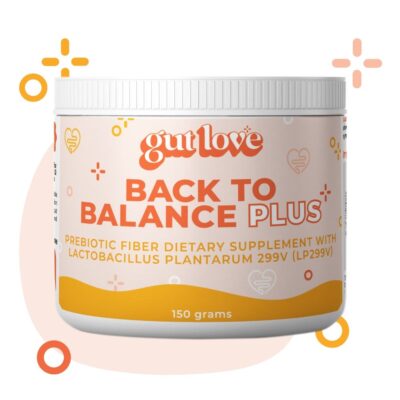Living with IBD can be incredibly difficult. Not only does it have a physical impact on the body, but it also affects those living with it emotionally too.
Some of the most important yet lesser discussed aspects of life that IBD impacts are body image, sexual intimacy, and fertility. These subjects can be difficult to talk about and yet almost 40% of IBD patients state that the condition has prevented them from pursuing intimate relationships.
Here, we discuss the link between IBD and sexual health and answer some common questions about fertility and pregnancy in IBD.
Body image and sexual intimacy in IBD
Most people living with IBD are physically capable of sexual intimacy. However, symptoms, medication, surgery, and disease progression can hinder their desire and ability to have sex.
A negative body image can also cause IBD patients to have anxiety about being sexually intimate with another person. Almost 70% of those with IBD state they have an impaired body image. This is more prevalent in women and in patients who have had surgery related to their IBD.
Talking to a loved one or therapist about body image can be beneficial and help to break down the embarrassment that many of those living with IBD feel.
IBD patients also face the issue of not being able to have sex as spontaneously as those without the disease.
Although it may require more planning, fulfilling sex life is possible with IBD. Communicating with a partner may feel challenging but talking about it can help make you both feel more at ease.
It is also worth remembering that sexual intimacy comes in many different forms. If some aspects are challenging, it does not mean that you won’t be able to still engage in intimacy in a way that you are comfortable with and enjoy.
Sexual dysfunction in IBD
Sexual health is a multidimensional aspect of life, encompassing physical, emotional, social, mental, and spiritual aspects. This causes depression and anxiety to be two of the main drivers of sexual dysfunction in those with IBD.
The symptoms of IBD and how these impact mental health can be very complex. For example, chronic inflammation, which causes hormonal changes, can decrease sex drive and lead to feelings of frustration. Perianal disease, which can lead to discomfort and even incontinence, can lower confidence and cause fear of sexual intimacy.
In IBD patients, more than half of women suffer from sexual dysfunction. For men with the condition, up to 45% can experience erectile dysfunction.
Sexual dysfunction in IBD patients can occur for many reasons. Psychological comorbidities such as anxiety, body image, and disease perception are strongly associated with poor sexual health in IBD patients. Physical consequences of surgery such as nerve damage and pain can also decrease libido, affect sexual response, and impact a patient’s enjoyment of sex.
Overall, IBD patients report a decreased quality of their sex life in comparison to those without the disease.
Can IBD affect my fertility?
IBD itself does not lead to reduced fertility among male and female patients, although many voluntarily choose childlessness thinking it will. In fact, for those with quiescent disease or mildly active IBD, fertility and birth outcomes are the same as those without the condition. Also, IBD patients are equally likely to respond to IVF as their non-IBD counterparts.
While most IBD medications do not affect fertility, there are some aspects of the disease that can impact conception:
- Malnutrition
- Nutrient deficiencies, such as a lack of B12, or anemia
- Decreased appetite, nausea, and weight loss
- Poor absorption of nutrients and/or increased losses in the stool
- Women can sustain damage to reproductive organs during IBD-related surgery
- Women with IBD can also experience perianal disease and fallopian tube inflammation
In men with IBD, active inflammation, poor nutrition, alcohol use, smoking, some medications, and surgery may cause infertility issues.
For those discussing family planning and pregnancy, every effort should be made to achieve disease remission before conception, as medications are unlikely to affect this process and active disease has been shown to contribute to such pregnancy outcomes as low birth weight and preterm birth.
Can IBD affect my pregnancy?
For IBD patients thinking of starting a family, the disease course and symptoms can cause concerns about conception and having a healthy pregnancy. While women with inactive IBD usually have no more difficulty in falling pregnant than those without the condition, it is not unusual for patients to worry about their ability to become parents.
When IBD is active, it can increase the risk of preterm birth, a lower birth weight, and stillbirth. Active IBD also raises the chance of miscarriage.
However, if you do fall pregnant, you should ideally be cared for by a multidisciplinary team who will work together to manage your IBD and pregnancy.
While pregnant, you might have concerns about IBD medications but aside from a few exceptions, medications used to treat IBD have no association with significant adverse fetal outcomes.
Family Planning Methods
For the best chance of a successful pregnancy, a woman’s IBD should be in control with no flare-ups. However, if you are not currently trying to conceive, it can be helpful to know how different forms of birth control can impact IBD:
- IUDs and implants are highly effective forms of contraception that are often recommended as a first-line intervention in patients with IBD
- The rhythm method is another option that doesn’t require any hormonal birth control, but does require a little extra work- some studies show it can be as effective as traditional birth control methods especially in those that use an app to monitor their cycles (1, 2).
- There is a slightly increased risk for the development of IBD with the use of oral contraceptives
- There is no sufficient data that pinpoints contraceptives as a cause of IBD relapse
- You should avoid contraceptives with an estrogenic component if at risk for venous thromboembolism (VTE)
- Avoid the DMPA contraceptive injection if you are at risk of or have osteopenia
Get Support with your IBD and sexual health
Living with IBD and navigating your sexual health alongside this can be difficult, but there is a wealth of support available including groups, resources, and professionals.
As specialists in IBD, the Crohn’s and Colitis Dietitians team is here for you. Our personal experiences with the disease mean we understand the impact it can have on your sex life. But with personalized nutrition therapy, we can help you to reduce IBD symptoms and reduce the likelihood of flare-ups.
Contact our team of dietitians today and get the tailored support you deserve.
References:
Berglund Scherwitzl et al., “Perfect-Use and Typical-Use Pearl Index of a Contraceptive Mobile App.”
Demiańczyk and Michaluk, “Evaluation of the Effectiveness of Selected Natural Fertility Symptoms Used for Contraception.”






0 Comments
Trackbacks/Pingbacks